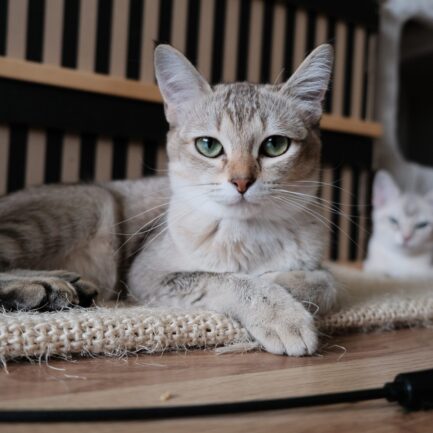Fostering Frequently Asked Questions
Can anyone foster?
Yes! Any adult who is willing to provide love, care, and monitoring to a pet in need can foster.
What supplies and space do I need?
SafeHaven will provide all veterinary care and medication. In addition, we will start you out with needed supplies such as food, litter, heating pad, bottles, milk replacer, etc. SafeHaven relies on donations for our supplies and greatly appreciates the generosity of foster parents who purchase supplies, which are considered tax deductible donations and help us save even more lives!
Space and setup vary with the type of animal, but underage kittens (our biggest need) require as little space as a bathroom.
What is the length of time for fostering?
The length of foster care varies based on the needs of the animal and your availability. Typical foster periods vary from 2 weeks (weaned kittens and puppies)-10 weeks (pregnant dogs and cats).
Can’t commit to fostering for more than a day or two? We also need foster first responders, who assist on a nightly basis by taking home bottle baby kittens to care for and returning them to the shelter the following day to be picked up by a more permanent foster.
What is my responsibility?
We ask that foster caregivers follow all feeding and medicating guidelines provided by staff, alert staff of any medical or behavioral concerns, and attend scheduled appointments. Most foster animals need to come back to SafeHaven for vaccine and deworming appointments every two weeks. These appointments will be scheduled in advance with our foster care team.
I want to foster underage kittens or puppies but I don’t know how to bottle feed. Do you offer training?
Our staff is here to support you. We offer two orientation sessions each month where we demo bottle feeding and stimulating. We have also compiled lots of excellent online resources to help you learn. Reach out if you have any questions! We typically start new fosters with older kittens or puppies that are eating on their own before taking home a bottle baby.
What if I fall in love and want to adopt my foster pet?
While saying goodbye is the goal of fostering once the animal is ready for adoption, foster parents are welcome to adopt in most cases – so don’t be afraid to fall in love! Keep in mind that some pets may already have a home lined up before you take them to foster. Ask the foster care team if you have any questions. Foster parents who adopt must complete all adoption paperwork and pay applicable adoption fees.
Top Tips for Kitten and Puppy Foster Caregivers
- Kitten-proof and puppy-proof your home: Keep medications, cleaners, electrical cords, electrical outlets, and house plants out of reach. Block access to any small hiding places such as under beds or behind cabinets.
- Appetite and energy are the two most important things to keep watch on. A lack of interest in food or a drop in energy can indicate a serious medical issue, even if no other symptoms are present.
- Daily weight gain is crucial for growing kittens and puppies. Weigh around the same time daily to track your foster pet’s progress.
- Make sure your kittens and puppies are dry and clean! Wet kittens and puppies can rapidly lose body temperature. Use baby wipes to gently clean faces and bottoms after feeding and stimulating.
- Bottle baby kittens and puppies less than 4-5 weeks old will need supplemental heat at all times. Make sure that the kitten or puppy has an area of the crate with no additional heating where they can go if they become too hot.
- Remember to thoroughly wash your hands after being in contact with your foster animal, especially between handling resident animals and foster animals.
